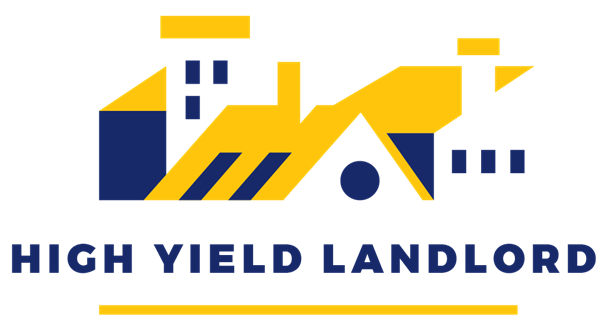How AI Could Unlock Africa’s Long-Term Potential And Why Helios Towers Is The Best Way To Play It
Last week, we announced the launch of a new series on African REITs.
This first article explores how the AI revolution could become a powerful tailwind for the continent and explains why we view Helios Towers (HTWS.L / HTWSF) as our top pick to capitalize on this opportunity.
AI And Africa
When investors think about the winners of the AI revolution, their minds often go to Silicon Valley, New York, or even Shenzhen.
But one of the most overlooked and high-upside regions is Africa, a continent often written off as underdeveloped, but uniquely positioned to benefit from this technological inflection point.
Why Africa Can Benefit from AI
1. AI Can End the Era of Bad Governance
Africa’s biggest development bottlenecks have long stemmed from poor governance. Corruption, inefficiency, and a lack of transparency have crippled progress for decades. But in a world increasingly shaped by superintelligent systems, there’s less room for idiocy at the top.
AI enables real-time oversight, predictive auditing, and automated checks that make it much harder for bad actors to hide. Government operations, from procurement to public service delivery, can be made radically more efficient and transparent through AI-powered platforms.
We are already beginning to see signs of this shift. Albania, for instance, recently appointed an AI system as its first “Minister of Finance,” highlighting how governments can turn to artificial intelligence to oversee critical state functions.
In a continent where mismanagement has cost countless lives and opportunities, this may be the single most important benefit of the AI revolution for Africa.
2. AI Can Radically Expand Access to Education and Healthcare
Beyond governance, Africa suffers from a chronic shortage of qualified professionals in two critical sectors: education and healthcare. AI has the potential to scale solutions across both fields in unprecedented ways.
Education: AI tutors can deliver personalized learning to rural and underserved students at near-zero marginal cost. These tools can adapt to a student’s level, work in local languages, and operate even in low-bandwidth environments.
Healthcare: Diagnostics and triage tools can scale medical support to areas with doctor shortages. Mobile AI apps can assist frontline workers with disease detection and treatment plans.
This isn’t just about convenience, it is about saving lives and unlocking human capital. When more people have access to education and basic healthcare, they are better equipped to participate in the economy and drive innovation.
3. A World of Abundance Could Uplift Africa First
One of the most overlooked dynamics of the AI revolution is that it could eventually usher in a world of abundance, where things that were once expensive become much cheaper. This would disproportionately benefit the world’s poorest regions, starting with Africa.
AI can dramatically lower the cost of key goods and services:
Affordable solar power, clean water systems, and basic home appliances become more accessible through AI-optimized supply chains and lower-cost robotic manufacturing.
Agricultural inputs like fertilizers, seeds, and irrigation systems can be produced and distributed more efficiently.
Education becomes accessible with free or nearly-free AI tutors.
Medical knowledge becomes available in every village via mobile apps.
Access to legal, agricultural, and financial guidance becomes democratized. with free or nearly-free AI tutors.
In short, when everything gets cheaper, the people with the least gain the most.
It may sound obvious, but it’s foundational: you can’t build a startup, attend school consistently, or scale a local business if you don’t have running water or basic healthcare. AI can help lift millions out of subsistence living and into basic modernity, and from there, economic participation and innovation become possible.
This democratization of foundational services could level the playing field and finally give Africa the tools it needs to grow from within.
4. Africa Is Demographically Aligned with AI
Africa has:
The world’s youngest population
A mobile-first economy
High digital adoption in areas like fintech, social media, and mobile payments
These traits make it an ideal region for AI-native services, especially in:
Education
Agriculture
Microfinance
Logistics
There is a growing base of tech-savvy, entrepreneurial youth eager to adopt and build on new tools. The infrastructure is slowly catching up. The opportunity is massive.
And culturally, Africa is already accustomed to mobile-first innovation. From M-Pesa mobile payments to telehealth and WhatsApp-based customer service, African users are quick to adopt new technologies that deliver real utility.
5. Africa Isn’t Losing What It Doesn’t Fully Have Yet
Unlike China, Vietnam, or Bangladesh, Africa never built a dominant export manufacturing base. While some countries rely on resource extraction or low-wage textile work, the region has never become the “factory of the world.”
That turns out to be a hidden strength. As AI and robotics threaten low-skilled manufacturing globally, Africa may have less exposure to the downside. There’s no massive industrial sector to hollow out.
Instead, Africa can leapfrog straight into the AI-powered services economy, just like it leapfrogged landlines with mobile phones.
This leapfrogging potential is critical. It means that Africa can sidestep some of the legacy issues that hold back development in other regions. And it gives the continent the opportunity to develop a digital-first economy from the ground up.




